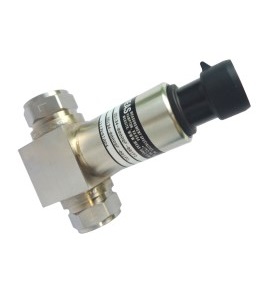A pressure transmitter is a device that measures and converts a pressure into an electrical signal. Pressure transmitters are the most common measuring devices because they can be used in many industries and applications. They are easy to maintain, very affordable and reliable.
Pressure transmitters are the most common measuring devices
You may be wondering what a pressure transmitter actually is, and how it works. The pressure transmitter is a device that measures the force applied on a surface.
They are commonly used in many different industries such as food and beverage, oil & gas, chemical manufacturing and pharmaceuticals. Pressure transmitters can be found in a wide variety of applications including:
- Air compressors
- Boilers
- Cooling towers
- Cylinder filling machines
A pressure measurement is usually made indirectly.
A pressure measurement is usually made indirectly. This involves measuring the force on a surface and converting it to pressure in units of Pascal (Pa), which is equivalent to 1 Newton per square meter (N/m2).
Pressure transmitters are used to measure pressure by directly transmitting this information from where it is being measured, such as a tank or pipeline, to a control room.
The pressure transmitter converts any changes in physical pressure into electrical signals that are sent over wires back to the control room where they can be displayed as numbers on digital monitors or computer screens.
They are easy to maintain, very affordable and reliable.
- Pressure transmitters are simple and inexpensive devices that can be installed within a few minutes. They require no special training or tools to operate them, making them ideal for industrial facilities where service personnel are not always available or do not have access to specialized training materials.
- The simple design of pressure transmitters also allows them to be installed in almost any location on your system that requires monitoring. No matter what type of industry you are in, pressure transmitters will help ensure that your facility is operating at peak efficiency while maximizing the return on investment (ROI).
Pressure transmitters are easy to use and accurate.
Pressure transmitters are easy to use and accurate. They come in a variety of sizes, and many can measure multiple parameters at once. They’re reliable, as well, with most units lasting for years without needing maintenance.
Price is another reason why pressure transmitters are popular among businesses: they’re affordable compared with other types of sensors, such as conductivity or pH sensors for water quality monitoring purposes. If you’re looking for an inexpensive but reliable method for measuring pressure in your home or business, consider installing a pressure transmitter.
Conclusion
Pressure transmitters are a simple and affordable option for industrial process control. They provide accurate measurements of pressure at the point of measurement and can be used to monitor a variety of parameters including temperature, level, flow rate, humidity, and more.
The different types of pressure transmitters offer different features for different applications. For example, diaphragm-type transducers have been developed specifically for harsh environments such as those found in oil rigs or chemical plants because they are able to withstand both high temperatures (200°C) as well as large amounts of vibration without damage or failure due to their robust construction materials such as stainless steel housings and silicone rubber diaphragms which protect against corrosion too!

